James Lovelock is packing up. In one sense, the celebrated scientist and environmental author is simply moving house. Boxes and piles of unsorted papers scatter the floor of his home and "experimental station" located in a wooded valley on the Cornwall-Devon border. But, in another sense, at the age of 92, he is finally leaving his life of scientific study and invention behind; a career that included the formulation of the Gaia theory, his highly influential hypothesis that the Earth is a self-regulating, single organism. His personal effects, notebooks and equipment are being logged and archived ahead of entering London's Science Museum's collection later this year.
But leaning over a shoebox, rummaging for a cherished letter he received from Nasa in 1961 asking him to help it discover more about the Martian atmosphere, Lovelock doesn't appear to be sentimental about his past. In fact, he appears relieved to be free of the burden and responsibility of self-storage.
"Adapt and survive," he says, when asked why he has decided to move. After more than three decades living amid acres of trees he planted himself by hand, he and his wife Sandy have decided to downsize and move to an old lifeguard's cottage by the beach in Dorset. "I'm not worried about sea-level rises," he laughs. "At worst, I think it will be 2ft a century."
Given that Lovelock predicted in 2006 that by this century's end "billions of us will die and the few breeding pairs of people that survive will be in the Arctic where the climate remains tolerable", this new laissez-faire attitude to our environmental fate smells and sounds like of a screeching handbrake turn.
Indeed, earlier this year he admitted to MSNBC in an interview reported around the world with somewhat mocking headlines along the lines of "Doom-monger recants", that he had been "extrapolating too far" in reaching such a conclusion and had made a "mistake" in claiming to know with such certainty what will happen to the climate.
But Lovelock is relaxed about how this reversal might be perceived. He says being allowed to change your mind and follow the evidence is one of the liberating marvels of being an independent scientist, something he has revelled in since leaving Nasa, his last full-time employer, in the late 1960s.
He says it will be the topic of his latest book, due out next year, which has the working title Adventures of a Lone Scientist. He smiles: "My publisher keeps telling me: 'Can't you do a more cheery book this time?'"
Moving house has handed Lovelock the chance to pore over the everyday objects resulting from his life's work, most of which have been in the attic for decades. He picks up an undated invitation to MI5's Christmas dinner at a restaurant in London. In his other hand, he holds an old envelope stamped: "On Her Majesty's Service: Top secret." (As a freelance scientist, he's worked for many organisations.) There are get-well cards from the likes of the astronomer Carl Sagan, sent when he had heart problems in the early 1980s.
He finally finds the letter from Nasa: "I'd read science-fiction since I was a small kid, so when I got a letter from the director of space flight at Nasa I was gobsmacked. I realised I didn't want to spend the rest of my life as a civil servant, and I didn't like the idea of having everything planned right up to my retirement. My boss [at the National Institute for Medical Research in London] said I'd be a fool to ignore it and out of all that, ultimately, came Gaia."
Lovelock is donating much of his archive, equipment and inventions – including the electron capture detector he made in the 60s that helped him to record CFC levels in the atmosphere, which later led to the discovery of the hole in the ozone layer – to the Science Museum, in time for an exhibition next year showing the working conditions of scientists through the ages.
He says he largely dismantled his home laboratory 10 years ago when he ended his life as a practising scientist: "I have become a thinker since then. There is so much more to do. I think retirement means death."
The move, he says, has been forced on him. Three years ago, he received a heating bill for the winter totalling £6,000. His age means he has to have the heating on full in his poorly insulted home and, with his disabled son, Tom, living in a house next door, his outgoings on fuel rocketed. Damp winters on the edge of Dartmoor were taking their toll, so in recent years he has overwintered in St Louis, his wife's hometown in Missouri. The experience altered his attitude to the politics and economics of energy. Having already upset many environmentalists – for whom he is something of a guru – with his long-time support for nuclear power and his hatred of wind power (he has a picture of a wind turbine on the wall of his study to remind him how "ugly and useless they are"), he is now coming out in favour of "fracking", the controversial technique for extracting natural gas from the ground. He argues that, while not perfect, it produces far less CO2 than burning coal: "Gas is almost a give-away in the US at the moment. They've gone for fracking in a big way. Let's be pragmatic and sensible and get Britain to switch everything to methane. We should be going mad on it."
Lovelock says the political fallout from the Fukushima disaster in Japan last year means that the chances of a surge in nuclear power generation are dramatically reduced. "The fear of nuclear is too great after Fukushima and the cost of building plants is very expensive and impractical. And it takes a long time to get them running. It is very obvious in America that fracking took almost no time to get going. There's only a finite amount of it [in the UK] so before it runs out, we should really be thinking sensibly about what to do next. We rushed into renewable energy without any thought. The schemes are largely hopelessly inefficient and unpleasant. Fracking buys us some time, and we can learn to adapt."
The reaction in Germany to Fukushima – which announced within weeks of the disaster that it was to shut down all its nuclear power plants by 2022 – particularly infuriates Lovelock: "Germany is a great country and has always been a natural leader of Europe, and so many great ideas, music, art, etc, come out of it, but they have this fatal flaw that they always fall for an ideologue, and Europe has suffered intensely from the last two episodes of that. It looks to me as if the green ideas they have picked up now could be just as damaging. They are burning lignite now to try to make up for switching off nuclear. They call themselves green, but to me this is utter madness."
Nestled deep into an armchair, Lovelock brushes a biscuit crumb from his lips, and lowers his cup of tea on to the table: "I'm neither strongly left nor right, but I detest the Liberal Democrats."
He delivers his mischievous bombshells with such rapidity and meekness that there is a danger one can miss the all-important clarification and context.
"They are all well-meaning, but they have mostly had little experience of power," he adds. "The coalition has behaved disgracefully on environmental and energy policies. It would have been much better if they had been properly rightwing. I don't mean something like Thatcher; that was a revolutionary Conservative government. Just a regular one. Our political system works because they tend to self-correct each other."
Even with politics, it seems, Lovelock's celebrated idea of a self-regulating organism applies. "We get to our stable position through checks and balances. The whole of nature does that through natural selection. Proportional representation is a very bad idea and an absolute gift to ideologues."
Lovelock does not miss a chance to criticise the green movement that has long paid heed to his views. "It's just the way the humans are that if there's a cause of some sort, a religion starts forming around it. It just so happens that the green religion is now taking over from the Christian religion. I don't think people have noticed that, but it's got all the sort of terms that religions use. The greens use guilt. You can't win people round by saying they are guilty for putting CO2 in the air."
He displays equal disdain for those who do not accept science on climate change: "They've got their own religion. They believe that the world was right before these damn people [the greens] came along and want to go back to where we were 20 years ago. That's also silly in its own way."
At times, Lovelock can cut something of an unsympathetic, cold figure. He talks about how, as animals, we're all "naturally racist", but how "we try to curb it and be sensible". So much of his talk seems to be underscored by the often brutal reality of natural selection and the self-correcting omnipotence of Gaia, with the result that there is little apparent concern for those – in the developing world, perhaps – who might not be able to adapt successfully to future environmental changes. But he also applies his strictly scientific outlook to his theorising about solutions, too.
Lovelock is influenced at present by US biologist EO Wilson and his study of social insects. "He's come up with an extraordinary theory that the nest is the unit of selection, not the individual insects. That has enormous consequences. Now consider that applied to humans. If we all move into cities, they become the equivalent of a nest. Then another thought comes immediately from that: if that's the way the flow is going, don't stop it, let's encourage it. Instead of trying to save the planet by geo-engineering or whatever, you merely have to air-condition the cities."
This Logan's Run vision of the future – where we all live in megacities to better manage dwindling resources – might not appeal to all, he admits. "But you don't even have to do the experiment. You only have to go to Singapore. You could not have chosen a worse climate in which to build a city. It's a swamp with temperatures in the 90s every day, and very humid. But it is one of the most successful cities in the world. It seems to me that they are treading the path that we are all going to go. It's so much cheaper to air-condition the cities and let Gaia take care of the world. It's a much better route to go than so-called 'sustainable development', which is meaningless drivel."
Such talk will not comfort the global leaders gathering in Rio next week for yet another international conference aiming to fix our environmental woes and where calls for "sustainable development" are sure to still be in vogue.
Lovelock says he's doubtful that internationalist efforts of this sort achieve much: "Whenever the UN puts its finger in, it seems to become a mess. The burden of my thoughts are very much that the climate situation is more complex than we at present are capable of handling, or possibly even in the future. You can't treat it as a scientific problem alone. You have to involve the whole world, and then there's the time constant of human activity. Look at how long ago the Kyoto treaty was – 15 years ago – and damn all has been done. The human time constant is very slow. You don't get major changes in under 50-100 years, and climate doesn't wait for that."
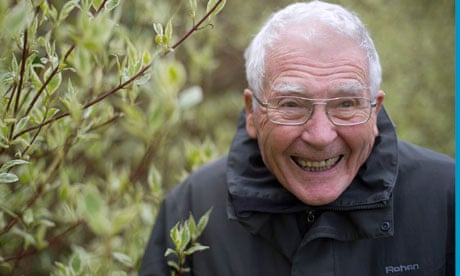
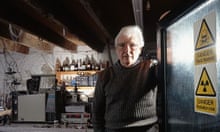

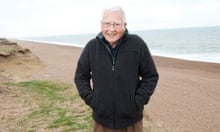
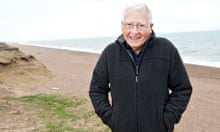
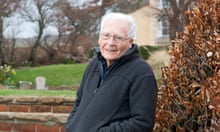
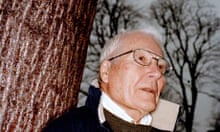



Comments (…)
Sign in or create your Guardian account to join the discussion